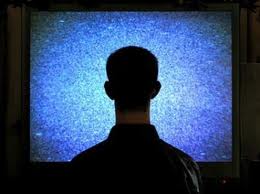As I close my eyes and dwell into the darkness of the night, sounds are becoming vivid, clear and magical. The sound of a cricket, or the electric fan, or the snore of my roommate are like movie sounds in Dolby Digital. Even though my eyes are close, everything seems to be visually clear; I can see things by the power of sound.
Batman’s amazing power to send high frequencies sonar signals is brought about by echolocation. Bats use this to find food and see in the dark. Dolphins also use the same technique to find dinner. Echolocation is a technique that uses sound to identify objects by the echoes the produced.
Ben Underwood (died because of cancer) is considered as a superhuman, using echolocation he saw things clearly, surviving every single day like a normal person. Research suggests that brains of the blind do not make the visual cortex useless. When blind people use another sense- hearing in the case of Ben- to substitute for sight, the brain’s visual cortex becomes active. And the echolocation takes its role to create images (abcnews.go.com, 2006).
Aggressive Spanish scientists have found evidence that most humans can learn to echolocate. The team also confirmed that the so-called palate click—a sharp click made by depressing the tip of the tongue against the roof of the mouth—is the most effective noise for people to use (National Geographic News, 2009).
Methods and Results of the Experiment
Ten sighted students were trained by Juan Antonio Martínez and his colleagues at the University of Alcalá in Madrid to echolocate. The students were asked to close their eyes and make sounds until they could tell whether any objects were nearby. After just a few days of training, the students had all acquired basic echolocation skills, the scientists report in the March/April 2009 issue of the journal Acta Acustica. After studying the shape of the sound wave that each noise produced, Martínez and his colleagues found that the palate click gives the most detailed feedback about a person's surroundings. (National Geograhic News, 2009)
Martinez stressed that an average person can develop good echolocation skills in a month if he or she trains for one or two hours a day. Blind people are likely to pick up the skill more quickly, Martínez said.
People who master echolocation can be close to Batman super heroic nature by maximizing the thing they can do in foggy, smoky or dark locations.
Retrieved:

















